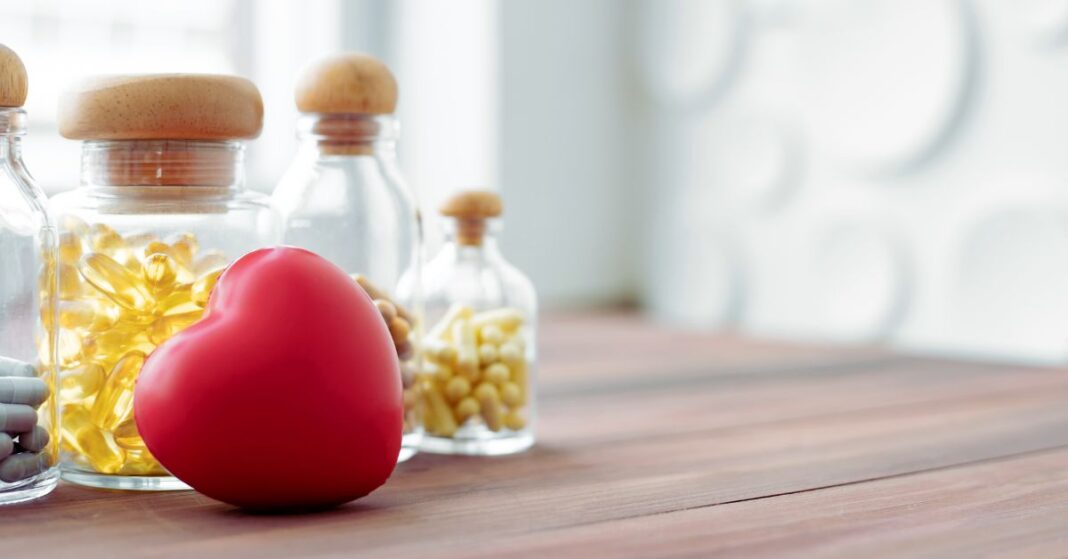Shucks, it’s that time of year when you go all soppy, touchy-feely and lovey-dovey! We start talking mush and bring out all the affectionate tropes that we somehow forget for the rest of the year.
If I have one message for all, it must surely be: DON’T LIMIT IT TO CHRISTMAS! Be nice to everyone the rest of the year too!
OK, let’s get down to some real work!…
Every now and then I get whines from “Googlers” (ignorant people who proclaim knowledge they found online). Quite a few are about me using magnesium stearate in some of my supplements; “It’s toxic!” they smugly remark and think they’ve caught me out in a crime or at least a blunder.
In fact magnesium stearate is an industry standard and prevents ingredients from sticking together and improves the consistency of supplements. It’s FDA generally recognized as safe (GRAS). The amount in a typical supplement pill is less than 20 mgs.
Nearly 500 years ago, beloved Swiss physician, mystic and chemist Paracelsus (1493 – 1541) expressed a fundamental principle of toxicology: “All things are poison and nothing is without poison; only the dose makes a thing not a poison.” This is often condensed to: “The dose makes the poison.” It means that a substance that contains toxic properties can cause harm only if it occurs in a high enough concentration.
 Paracelsus (real name Philippus Theophrastus Aureolus Bombastus von Hohenheim)
Paracelsus (real name Philippus Theophrastus Aureolus Bombastus von Hohenheim)
In other words, any chemical—even water and oxygen—can be toxic if too much is ingested or absorbed into the body. The toxicity of a specific substance depends on a variety of factors, including how much of the substance a person is exposed to, how they are exposed, and for how long.¹
Below the toxic dose, the substance is quite safe. Duh!
In fact most of you may not know (it’s now long ago) that doctors pick-me-up “tonics”, often contained strychnine. Deadly poison in larger dose, strychnine was somewhat beneficial in micro-doses, an effect we call hormesis.
So much so that Olympic athletes and marathon runners have been known to “dope” on strychnine, according to WADA (World Anti-Doping Agency).
 Easton’s “Syrup” with Strychnine, circa 1893
Easton’s “Syrup” with Strychnine, circa 1893
Another criticism that keeps coming up: don’t I know that ubiquinol is far better absorbed and more biologically active than ubiquinone, which is used in my Mito-Cell Rejuvenator?
My reply (if I wasn’t too irritated to reply!) was always the same: the two are interchangeable. Once absorbed ubiquinol becomes ubiquinone and vice versa. So why pay more? The late Dr. Stephen Sinatra and I were square on this point and agreed with each other.
Of course sneaky supplement marketers played on the supposed advantages of ubiquinol, at greater cost… more profits for them! But where’s the science?
Truth is, there wasn’t much about comparing the two, till 2023, when a bombshell paper was published. In a nutshell, researchers were saying that ubiquinone is in fact BETTER than ubiquinol, at least for heart health (which is why you would take CoQ10).
As noted by the authors:
“A slightly better water solubility and a lack of understanding absorption and transfer of CoQ10 and CoQH2 have led to misleading interpretations pushing CoQH2 as more bioactive form.”
Coenzyme Q10 is a redox molecule (reduction and oxygenation) occurring in the human body in 2 bioactive states, ubiquinone (CoQ10) as the oxidized state and ubiquinol (CoQH2) as reduced state. Both redox forms of Coenzyme Q10 are bioactive and important for human health.
CoQ10 is essential for cellular adenosine phosphate (ATP) energy production, as it shuttles electrons from complexes I and II to complex III of the mitochondrial respiratory chain.²
Ubiquinol is an important lipid-soluble antioxidant preventing peroxidation of the low-density lipoproteins in the blood circulation with additional anti-inflammatory activity.
Recent reviews clearly approved the beneficial effect of either form of supplementation in treatment and prevention of cardiovascular disease (CVD). But clinical trials did not distinguish between the properties of CoQ10 and Ubiquinol. It was time to do a real comparative study.
A PubMed search for the terms “ubiquinone” and “ubiquinol” was conducted, and 28 clinical trials were included. The findings go along with the biochemical description of CoQ10 and CoQH2, recording cardiovascular benefits for CoQ10 (ubiquinone) and antioxidative and anti-inflammatory properties for CoQH2 (ubiquinol).
The main clinical outcomes were as follows:
• Ubiquinone supplementation reduced cardiovascular death in patients with heart failure. This is not reported for ubiquinol.
• Test concentrations leading to cardiovascular benefits are much lower in ubiquinone studies than in ubiquinol studies.
• Positive long-term effects reducing cardiovascular mortality are only observed in ubiquinone studies.
In summary: “Based on the existing literature, the authors recommend ubiquinone instead of ubiquinol to treat and prevent cardiovascular disease in patients with heart failure.”
So it’s another “I Told ‘Em!”
Bottom Line: take either, but CoQ10 as ubiquinone is much cheaper, is what you really want, and is usually what you will be offered.
To Your Good Health,
Prof. Keith Scott-Mumby
The Official Alternative Doctor
References:
- https://www.chemicalsafetyfacts.org/health-and-safety/the-dose-makes-the-poison/
- Fladerer, JP., Grollitsch, S. Comparison of Coenzyme Q10 (Ubiquinone) and Reduced Coenzyme Q10 (Ubiquinol) as Supplement to Prevent Cardiovascular Disease and Reduce Cardiovascular Mortality. Curr Cardiol Rep 25, 1759–1767 (2023). https://doi.org/10.1007/s11886-023-01992-6





